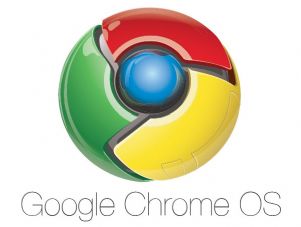I hate to admit it, but I’m a little bit confused. There’s no shame in confusion, especially in this industry. In fact, I think if more people admitted they were confused or bemused by something or didn’t understand it properly, they might make less mistakes. The problem, as I see it, is that too many people won’t admit to be being confused. Worse still, some vendors are only too happy for them to remain in that state.
So anyway, why am I confused? I’ve been reading about the latest Dev channel release of Google’s Chrome OS. You remember Chrome OS right? It’s the Google OS that’s not Android. It’s the OS that runs on Chromebooks. Getting any traction now? They were aimed at the netbook market? Netbooks? Oh, they were sort of smaller, stripped down notebooks. They were big news for a few months back in 2010.
So anyway, just to refresh your memory, Google had this product called Chrome OS that was a web browser-based OS running HTML5 web apps. It had produced its own prototype machine running the OS, called the Cr-48, in December 2010. In May 2011, Google announced the real deal, the first commercial Chromebooks, an 11.6" machine from Acer and a 12.1" version from Samsung, that would start shipping in June. It also revealed it would be launching Chromebooks for Business, a subscription-based service providing a company with a Chromebook, warranty and replacement, support and hardware auto-updates for $28 a month. A similar service was also announced for the education market with a monthly subscription of $20 per user.
So what happened? Not much really. In November, Google reduced the price on the Chromebooks but with the exception of education, sales and adoption appear to have been fairly flat.
So why am I writing about this now? Well, it’s all down to that Dev channel release. There’s a new window manager that comes with it called Aura that’s described as "a new accelerated user interface framework for Chrome UI". The significance of this event is that it gives Chrome OS a much more recognisable desktop look and feel, as well as a taskbar and an app launcher. Some might think that much more recognisable look and feel is heightened for Windows 7 users by the taskbar and intensified for OSX users by the familiarity of the app launcher.
This marks a big shift from the original Chrome OS which had a minimal user interface "to stay out of your way" as the Google official blog put it. The arrival of Aura seems to suggest that users don’t actually want the user interface to stay out of their way, or at least not as far out of the way as Google thought they did.
So, essentially, Google has been forced to admit that the desktop interface that we have all become so accustomed to using serves a purpose for many users and they don’t want it to stay out of their way. Ironically, this is happening at almost the same time as Microsoft is taking a big jump towards a completely different type of interface with Windows 8. Meanwhile, the app launcher in the Dev channel release of Chrome OS is very reminiscent of Launchpad in Mac OSX which, in turn, has been ported from Apple’s iPhone and iPad-based iOS.
As others have already pointed out, there’s an interesting mix of Windows and OSX in this release. Now that could be the source of my confusion, but it isn’t. What’s confusing me is whether the addition of these features is an admission of defeat by Google (which some people seem to think) or a demonstration of its intent to really go after Windows by making Chrome OS more friendly to Windows users at a time when Windows itself may well become more confusing (which is what a few others say).
Personally, I think both camps may well be right. Google has been forced to introduce desktop style features to Chrome OS because that’s what people want and they want them because they’re used to them from Windows and Mac OSX. Many of them are just not ready to go outside the comfort zone of a familiar look and feel. But, at the same time, introducing those features could possibly make it a more effective competitor to Windows and Mac OSX. Whatever happens, I don’t think they could make it any less effective.







Subscribers 0
Fans 0
Followers 0
Followers